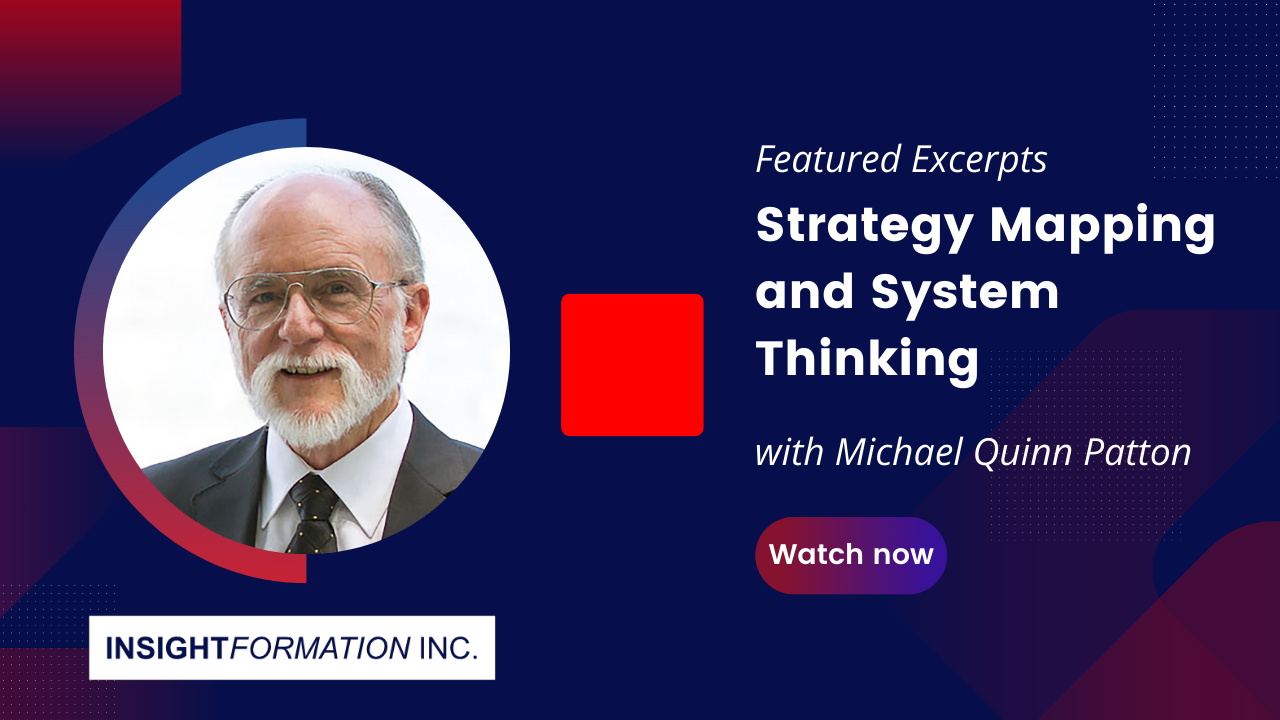IASP Webinar: Addressing Cross-Boundary, Cross-Sector Challenges using Strategy Management at Scale
Learn how co-creating and implementing strategies at a state or community level is different from working on organizational strategies.
The Government Community of Practice of the International Association for Strategy Professionals is offering a high-impact webinar on how states, counties and cities can more effectively co-create and implement strategies for complex issues like climate change, health equity, healthy aging, community safety and housing affordability.
These issues are too big for any single organization to solve, but new techniques and tools are showing how to do this much more effectively.
THURSDAY, JULY 18TH, 2024 | 11:00 AM Central / 12:00 PM Eastern
Join John Bryson and Bill Barberg for a live webinar that explains Strategy Management at Scale (SM@S) on Thursday, July 18.
(Can’t attend live? Scroll down to to get free access to the webinar recording.)
Strategy Management at Scale (SM@S) is key to achieving the aspirations of Collective Impact.
The concept of Collective Impact has gained a lot of attention in the past 14 years for good reason—efforts that improve the alignment of mutually reinforcing activities around a common agenda with shared measures and continuous communication tend to be more effective that fragmented, isolated interventions. Unfortunately, most efforts to apply Collective Impact practices struggle to achieve the desired impact. The techniques of SM@S can greatly improve the outcomes.
Community Strategy Engagement (CSE) techniques and tools are essentially the same as those of SM@S.
CSE focuses more on impact for a specific community and SM@S focuses on larger system change and social transformation, but both have an emphasis on strategy maps, system thinking, and related techniques to co-align the efforts of many organizations over several years to achieve successful strategy implementation.
A Case Study of SM@S and CSE – Transforming Child Welfare in Arkansas
A good example of the SM@S and CSE techniques and tools involves the work to transform child welfare in the city of Fort Smith, in Sebastian County, Arkansas. InsightFormation helped a wide range of organizations and people in Arkansas build out a robust common agenda for their collective impact efforts using strategy mapping and related techniques. The resulting changes are both inspiring and encouraging, as shown in this 11-minute video that is edited from webinars in late 2016 (after the initial phase of work) and in early 2022, after the impact of the system change was evident. (This case study is different from the example that will be used in the webinar.)
The SM@S techniques can be used for many different topics.
InsightFormation is using the SM@S and CSE to support progress on a wide range of complex, cross-boundary challenges, such as:
Early childhood development and kindergarten readiness
Climate action and environmental justice
Housing affordability
Chronic disease prevention
School success and positive youth development
Teen mental health
Breaking the multigeneration cycle of poverty and poor health
Juvenile crime prevention
Alzheimer’s Disease and Related Dementia (healthy aging)
Strategy Mapping and System Thinking are Key to More Effective Evaluation
This 4-minute video featured excerpts from conversations between Michael Quinn Patton and Bill Barberg discussing the need to move from project-focused evaluation to having a co-created Theory of Transformation, along with improved techniques (using strategy maps) to improve the impact of evaluation to support system change.
Email Bill Barberg to receive the recording of this webinar at no cost.
Please email Bill.Barberg@InsightFormation.com with the subject line IASP Recording to receive a link to the recorded version of the webinar once it has been posted.
Download the following 2 PDF files while you are waiting.
A seven-page summary of the report by the IBM Center for the Business of Government on Addressing Complex and Cross-Boundary Challenges in Government: The Value of Strategy Mapping
The Starter Guide to Implementing Population Health Strategies summarizes the chapter Bill Barberg wrote for the 2017 book, Solving Population Health Problems through Collaboration (Routledge).
Click one (or both) of the above links to get one of my white papers.
You can also click the link below to register for the webinar directly with the IASP.
Speakers
John M. Bryson is the McKnight Presidential Professor Emeritus at the
Hubert H. Humphrey School of Public Affairs at the University of Minnesota.
He works in the areas of leadership, strategic management, and organizational and community change processes.
He is the author of the award-winning and best-selling Strategic Planning for Public and Nonprofit Organizations, 5th Ed. (John Wiley, 2018).
Dr. Bryson has received many honors for his work including lifetime achievement awards from five academic professional associations, including most recently, the 2021 Routledge Prize from the International Research Society for Public Management.
He is a fellow of the National Academy of Public Administration and consults widely on strategic management with public, nonprofit, and business organizations in the U.S. and abroad.
Bill Barberg, a co-founder of the Population Health Learning Collaborative, is the President and Founder of InsightFormation, Inc., a Minnesota-based consulting and technology company that helps communities, regions, and states address complex social and health issues that require multi-stakeholder collaboration. His deep background in strategy implementation has been featured in dozens of conference presentations, papers, and webinars.
Bill was selected to write the chapter on “Implementing Population Health Strategies” for the book, “Solving Population Health Problems through Collaboration” (Routledge, 2017). His recommendations for using strategy maps is featured as a core recommendation in the new report by the National Academy of Public Administration. Bill recently co-authored a paper for the Journal of Change Management on “Leading Social Transformations to Create Public Value and Advance the Common Good”.










